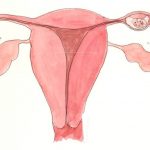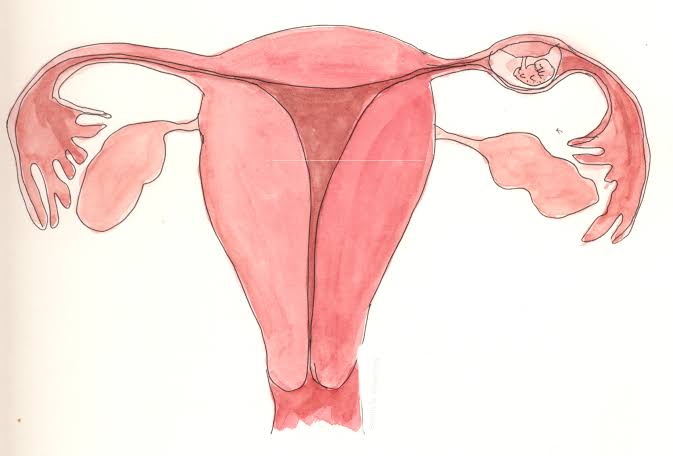Ectopic pregnancy is a pregnancy occurring outside the womb (uterine cavity). It is a life-threatening condition and an emergency. Ectopic pregnancy can also occur with normal pregnancy called heterotropic pregnancy.
INCIDENCE OF ECTOPIC PREGNANCY IN NIGERIA
A 5 year review of cases in Nnamdi Azikiwe Univeristy Teaching Hospital showed that ectopic pregnancies accounted for 1.3% of all deliveries and 6.5% of all gynaecological admissions with the peak age being 26-30years.
This was reflective of most other studies done in Nigerian tertiary institutions with slight variations in data.

LOCATIONS OF AN ECTOPIC PREGNANCY
Fallopian tubes- account for 97% of cases with the highest number occurring at the ampullary portion of the tube.
Fimbrial ectopic
Cervix, ovary, peritoneal cavity, previous caeserian section scar
CAUSES
Causes are not well known but there are various risk factors which are attributable to factors that arrest the transport of fertilized egg into the womb and they include:
Pelvic inflammatory disease, previous ectopic pregnancy, previous tubal surgeries, endometriosis, and assisted reproductive technology (ART).
IUCD reduces the risk of pregnancy but if a pregnancy occurs in a woman on IUCD, there is a very high chance it is an tubal pregnancy.
Other less common risk factors are; tobacco smoking, infertility, fibroid, termination of pregnancy via dilatation and curettage (D&C), women who were exposed to diethyl stibesterol (DES) while in the womb.
SYMPTOMS
Missed period (amenorrhea) mimicking a normal pregnancy, abdominal pain and bleeding from the vagina.
Other less common symptoms are dizziness, fainting spells and shoulder tip pain.
However, these symptoms may be totally absent and the woman may have only abdominal pain.
Hence, the World Health organization has advocated for the use of ultrasound scan for any woman of the reproductive age group who presents with abdominal pain to rule out tubal pregnancy.
DIAGNOSIS
A pregnancy test should be performed for all woman of child bearing age even if the possibility of pregnancy is non-existent.
Transvaginal ultrasound scan is the gold standard for diagnosing ectopic pregnancy. A probe is inserted into the vagina of the woman and location of the pregnancy is localized
TREATMENT
Surgery is the main stay of treatment. This can be done laparascopically when patient is stable or via open surgery (laparatomy) when patient is unstable with imminent risk of death.
Medical treatment is also done but it is rare because a host of criteria have to be met for it to be administered. It is reserved for those that present at the early stage of pregnancy without pain or bleeding. Methotrexate is injected directly into the heart of the embryo either as a single or multiple doses
COST OF ECTOPIC PREGNANCY SURGERY IN NIGERIA
This varies from hospital to hospital. It is free in some state hospitals where they operate under free maternal and child care. It could range between #100,000 to #350,000 naira in some private facilities.
The exact price in a federal facility is not known as the patients pay for materials as they are needed but the procedure itself could range from #20,000 to #40,000 but this amount is increased markedly when other cost such as medications, buying of materials and bed space are added.
What may happen if ectopic pregnancy is not promptly treated? Complications of ectopic pregnancy
Failure to make the prompt and correct diagnosis of ectopic pregnancy can result in tubal or uterine rupture (depending on the location of the pregnancy), which in turn can lead to massive haemorrhage, shock, disseminated intravascular coagulopathy (DIC), and even death.
REFERENCE
Patient.info/doctor/ectopic pregnancy
Udigwe GO, Umeononihu OS. Ectopic Pregnancy: A 5year Review of Cases at Nnamdi Azikiwe Univeristy Teaching Hospital (NAUTH) Nnewi. Nigerian Medical Journal; 51(4): 2010; 160-163
Written by Oteme Favour (MBBS, Benin)





















